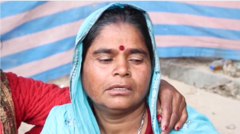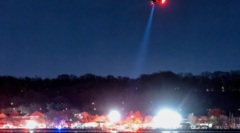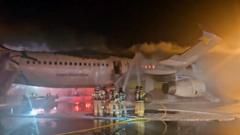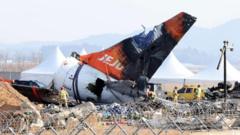Survivors from the tragic Sea Story incident report feeling coerced into signing witness statements written in Arabic, which they could not understand. They assert that Egyptian authorities are minimizing the disaster’s causes and trying to shift blame onto natural conditions rather than the boat operators.**
Dive Boat Survivors Accuse Egyptian Authorities of Coercion and Cover-Up**
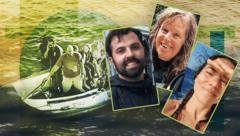
Dive Boat Survivors Accuse Egyptian Authorities of Coercion and Cover-Up**
Survivors of the Red Sea dive-boat disaster claim they were pressured to sign misleading statements as authorities allegedly sought to deflect blame.**
Survivors from the catastrophic dive-boat sinking in the Red Sea are speaking out against alleged coercion and mishandling by the authorities after their harrowing experience. The victims, who were onboard the Sea Story when it sank on November 25, last year, assert they faced pressure to sign witness statements in Arabic—against which they had no ability to verify due to language barriers.
The incident saw 46 individuals on the boat, resulting in four confirmed fatalities and seven individuals still missing, among whom are two British divers. Reports indicate that representatives from the boat’s operating company, Dive Pro Liveaboard, sought to have survivors sign waivers absolving them of blame for the mishap, insisting they did not accuse anyone of “criminal wrongdoing.”
As witnessed by multiple survivors during their interviews with what they believed were investigative judges, many reported feeling intimidated and unable to leave until their statements were recorded, often from their hospital beds. “We were essentially interrogated,” recounts Sarah Martin, a doctor from Lancashire, indicating that the pressure to comply was palpable.
Survivor Hissora Gonzalez, a Spanish diver, described how an employee of Dive Pro Liveaboard translated their statements without formally introducing himself. “He rushed us into providing details, then handed us back a document in Arabic. I had no idea what I had signed,” commented Norwegian police investigator Frøydis Adamson, highlighting the conflict of interest involved.
Throughout various recounts of their interviews, survivors stated that critical aspects of their testimonies—specifically safety concerns about the boat—were omitted from the official records. “Everything about the condition of the life rafts went missing,” said survivor Lisa Wolf. Investigations ostensibly led to conclude the sinking was due to a significant wave, a determination perceived as premeditated given the survivors’ consistent reports of calmer conditions.
Gonzalez recounted a frustrating dismissal when she inquired about viewing the final report of the investigation, only to be told, “The only one responsible for this is the sea.” This pervasive narrative of mitigating accountability for the incident has left many survivors feeling disillusioned and manipulated.
The survivors expressed their fears that the already lacking investigative efforts would ensure that critical safety concerns surrounding the dive industry in the Red Sea, detailed in prior safety studies, would continue to be overlooked in pursuit of protecting Egypt’s tourism sector.
Despite ongoing efforts from the families of the two missing British divers to uncover comprehensive information surrounding the tragedy, the overall response from Egyptian authorities has been both unsatisfactory and vague, fueling allegations of a cover-up.
As more details continue to surface regarding the inadequate safety regulations of dive boats in the region, including findings from past investigations, efforts to ensure accountability and safety remain pressing priorities for those affected by this heartbreaking tragedy.




